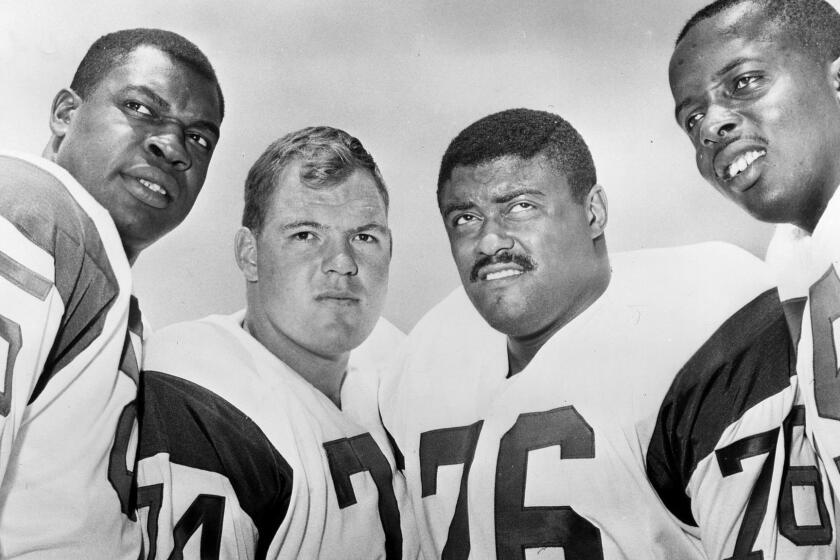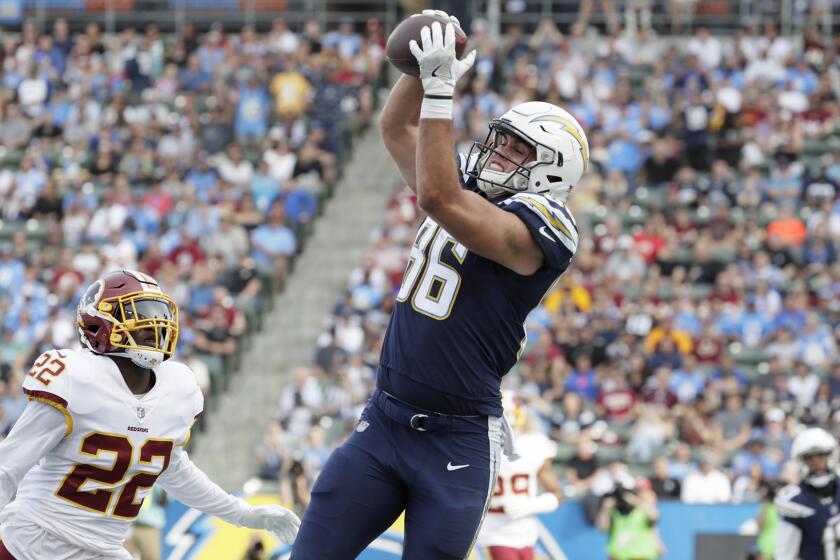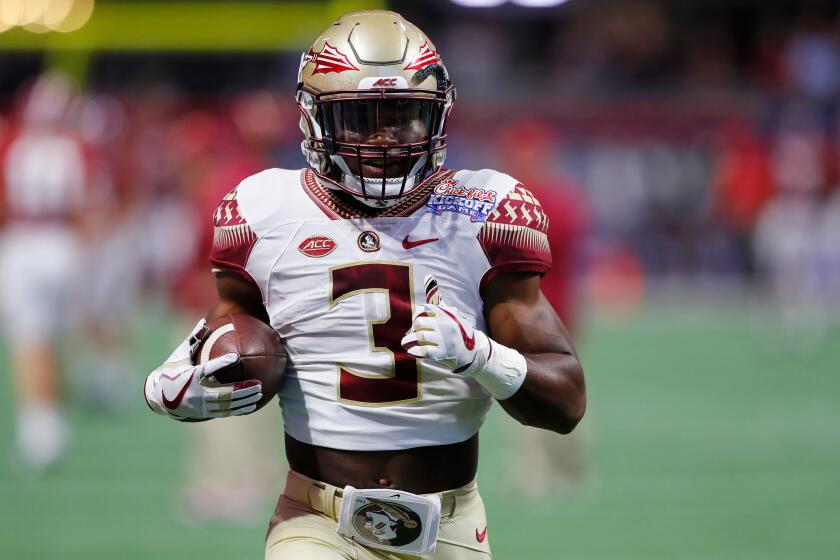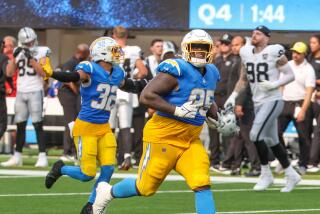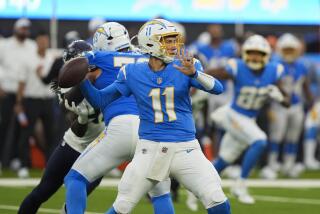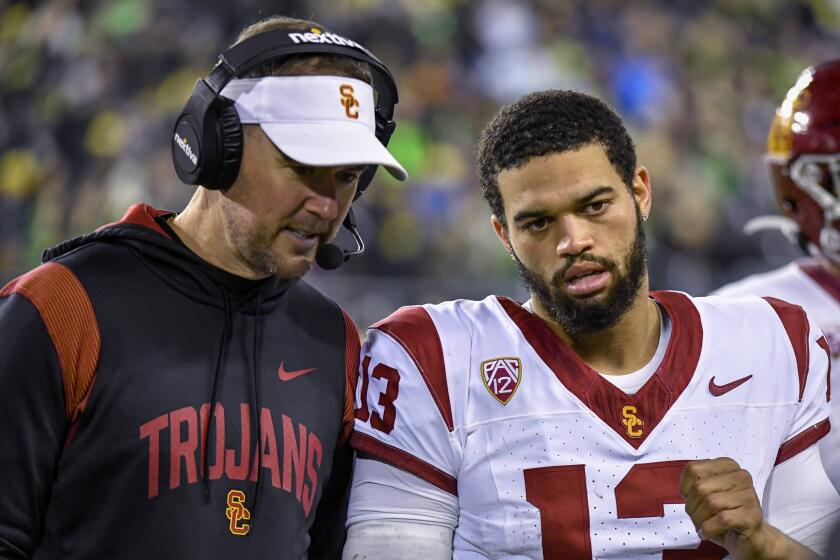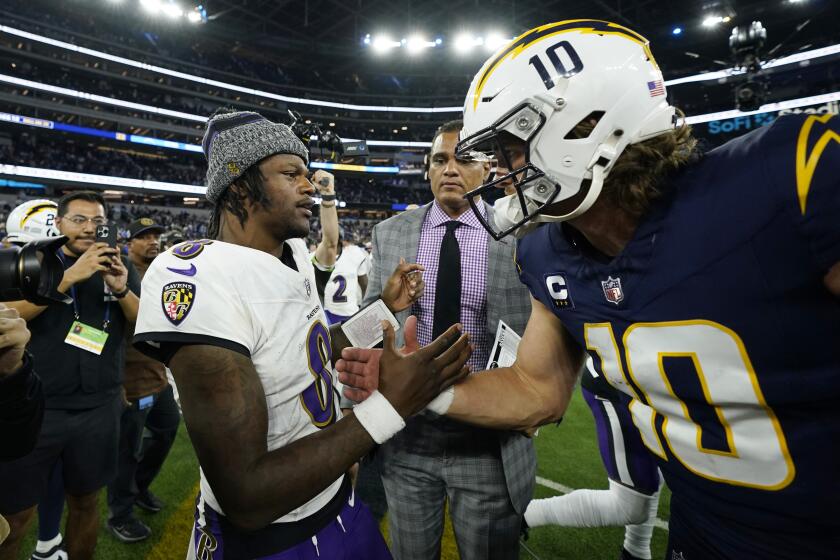Gus Bradley says Chargers need to be in rush to fix defense
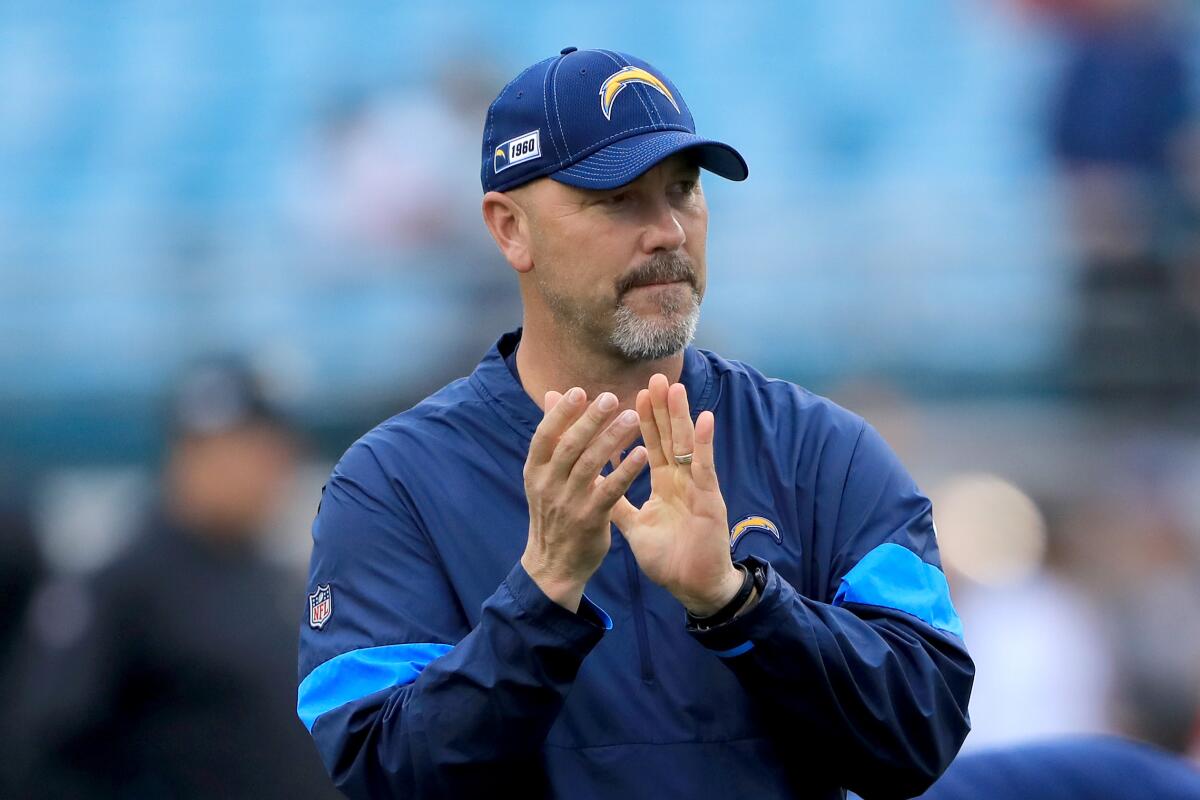
Only five teams allowed fewer total yards last season than the Chargers and just four were stingier against the pass.
Yet, defensive coordinator Gus Bradley admitted Wednesday those facts rang hollow in the aftermath of the team’s 5-11 finish.
“I think to all of us as a defense and defensive coaches,” he said, “it didn’t feel like that.”
Instead, Bradley noted the areas in which the Chargers struggled and how those facts better detailed why a promising season dissolved into an underachieving one.
Bradley’s unit was 21st in red-zone defense, 29th on third down and 32nd in takeaways.
The Chargers finished tied for last with a minus-17 turnover differential, which is why, when asked recently what the defense needs to improve upon in 2020, safety Derwin James blurted, “Takeaways.”
Who is the biggest icon in L.A. sports history? Readers get to decide.
James then added: “We gotta get the ball. It’s all about the ball.”
To that end, Bradley said an emphasis will be placed on pressuring quarterbacks this season, the idea being that offenses are more susceptible to game-changing mistakes when hurried.
Even with Pro Bowlers Joey Bosa and Melvin Ingram on the edges, the Chargers lacked reliable pressure in 2019. After Bosa and Ingram, no one had as many as three sacks. League-leading Pittsburgh had six players with at least three sacks.
“Yes, you’ve got to stop the run,” Bradley said. “Yes, you’ve got to eliminate explosive plays. But you have to find ways to affect the quarterback … We didn’t do a good enough job last year in doing that.”
In 2019, eight of the top 10 defenses in passer rating made the playoffs. The Chargers finished 23rd, one spot behind two-win Cincinnati.
Chargers tight end Hunter Henry will miss Philip Rivers. But he’s eager to see what the team can do with a different offense.
So, this offseason they’ve added nose tackle Linval Joseph, a 329-pound former power lifter who’s expected to bring a new level of athleticism.
Joseph is replacing Brandon Mebane, who is four years older and an ex-team captain. On Wednesday, Bradley praised Mebane, particularly for his leadership. But the Chargers understand they need to find a push in the middle.
“We’ll see if he can bring some more explosiveness, more of a penetrating-type mentality to that position,” Bradley said of Joseph.
They also are counting on the continued development of defensive tackle Jerry Tillery, their first-round pick in 2019. Tillery was added in part because of the belief he could pressure the quarterback from inside.
Instead, his rookie season was mostly a difficult transition, especially in dealing with double teams, something Bradley said Tillery is attempting to combat by increasing his strength and size.
The Chargers also signed veteran cornerback Chris Harris Jr. and veteran linebacker Nick Vigil and used draft picks on linebacker Kenneth Murray Jr. (first round) and safety Alohi Gilman (sixth round).
Those moves should provide increased positional versatility and play-making among the defense’s back seven spots.
Rams’ top draft pick, Cam Akers, says he has ‘big boy pants on’ and can handle all the roles of a running back in the NFL.
After he joined the team, Harris said he was told the Chargers planned to shake up their defensive plans, which Bradley confirmed Wednesday.
Bradley said, if things fall into place, his defense will be able to play more man-to-man pass coverage, a sharp departure from recent seasons.
“We need to mix it up more,” Bradley said. “[Playing man] I think lowers the quarterback rating. Generally, when you look at them [man-to-man statistics] over the course of a year, if you don’t overdo it, they have better numbers than zone.”
More to Read
Go beyond the scoreboard
Get the latest on L.A.'s teams in the daily Sports Report newsletter.
You may occasionally receive promotional content from the Los Angeles Times.

